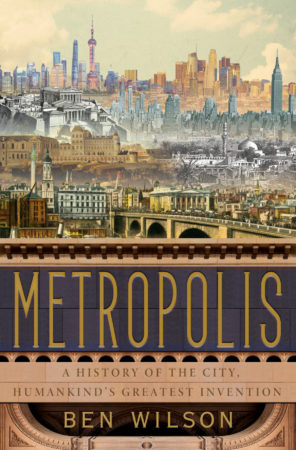 Pagans & Christians in the City: Culture Wars from the Tiber to the Potomac
Pagans & Christians in the City: Culture Wars from the Tiber to the Potomac
Steven D. Smith (Eerdmans, $65, 386 pages)
Steven D. Smith, coordinator of the University of San Diego’s Institute for Law and Religion, has written a provocative book arguing that today’s culture wars are really a rehash of the ancient debates between pagans and Christians. Smith is both scholarly and accessible in his examination of classical antiquity and the debates about religion and the public square, which are fundamentally debates about knowledge and belief, and which worldview should inform the constitutions and laws of nations on Earth. He ably compares ancient Roman debates and practices to current controversies, with an entire chapter on sexual morality. Smith observes “modern sexual norms run parallel in important respects to ancient pagan attitudes and practices,” noting that the only difference is that today they “have been extended to include women as well as men.” He notes that the seemingly new prioritization of sexual expression is essentially pagan, in that to the modern mind – as it was for many Roman philosophers — “sexual intimacy … enjoys a kind of priority or even sanctity … (it) is something that is central to a complete human life.” Urban centers created and supplied ample opportunity for sexual outlets of all kinds – again, for men – where “sex is eminently affordable.” No buying the cow when milk was, if not free, practically so. Sex without commitment is the cheapest sex available.
Paganism is not anti-religion – it is a religion, and one that places the self at the center of meaning. As Smith writes, “Pagan religion locates the sacred within this world. In that way, paganism can consecrate the world from within this world: it is religiosity relative to an immanent sacred. Judaism and Christianity, by contrast, reflect a transcendent religiosity; they placed the sacred, ultimately outside the world – beyond time and space.” Paganism, as a form of religiosity, was never very tolerant of Judeo-Christian belief. And, according to Smith, Western culture has never fully de-paganized. Smith, echoing Douglas Laycock, says that both sides seem to want a total win, that there can be no peace between the two worldviews. After centuries of ostensible dormancy, paganism seems rejuvenated in recent decades.
 Metropolis: A History of the City, Humankind’s
Metropolis: A History of the City, Humankind’s
Greatest Invention
Ben Wilson (Doubleday, $39, 442 pages)
Historian Ben Wilson has written a fascinating history of cities and how they have shaped their populations and countries, beginning with the first city, Uruk (immortalized in The Epic of Gilgamesh) and running through Harappa and Babylon (the Garden of Eden and Sin City) to the first cosmopolises Athens and Alexandria, the imperial city of Rome, to modern global cities such as Lisbon and Amsterdam, and eventually London, Chicago, Paris, Las Angeles, Shanghai, New York and Lagos. Trumpeting the many successes of the city, (higher incomes, better education), Wilson also acknowledges they are often “harsh, merciless environments,” that can “warp our souls” and “fray our minds.” Wilson notes in the introduction that “we are … very bad at building cities; we have planned and constructed, in the name of progress, places which imprison rather than liberate, immiserate rather than elevate.” The best plans – by experts, of course – run into the reality of tens of millions of people whose lives cannot be turned into rational automations. Put millions of people in close proximity, and in some ways the sensual pleasures available take over any sense of community that more human-scale living affords. Wilson explores these paradoxes with recurrent themes such as housing, transportation, and commerce, and, as Steven Smith notes in Pagans and Christians in the City, what by now seems the inevitable easy and affordable availability of sex among people with no long-term ties in high density environments. Wilson says the metropolis has room for neighbourliness and urbanization needs to be re-imagined, even if human nature always seems to get in the way of the best laid plans.




